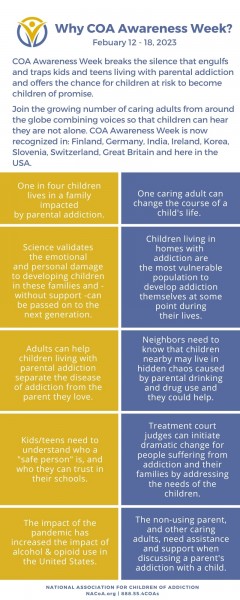Recognizing Substance Use Disorders & Mental Health Concerns
May 2024
Mental Health Awareness Month
Call Wellness Support: Warm Line at [Please enable JavaScript.]
April 2024
HRSA Initiative
 Strengthening maternal health is crucial for improving the lives of all mothers and babies. How can you support Black maternal health? Use the HRSA toolkit to raise awareness for Black Maternal Health Week, April 11 – 17, 2024. Provide support by accessing the newest videos and stories that celebrate progress toward strengthening Black maternal health. Also, build your knowledge and support by registering to join the HRSA webinar on April 11 at 2 p.m. ET, "Unlocking the Future of Maternal Health Begins with Research."
Strengthening maternal health is crucial for improving the lives of all mothers and babies. How can you support Black maternal health? Use the HRSA toolkit to raise awareness for Black Maternal Health Week, April 11 – 17, 2024. Provide support by accessing the newest videos and stories that celebrate progress toward strengthening Black maternal health. Also, build your knowledge and support by registering to join the HRSA webinar on April 11 at 2 p.m. ET, "Unlocking the Future of Maternal Health Begins with Research."
Visit: Strengthening Black Maternal Health | MCHB (hrsa.gov)
April 2024
Partnership to End Addiction
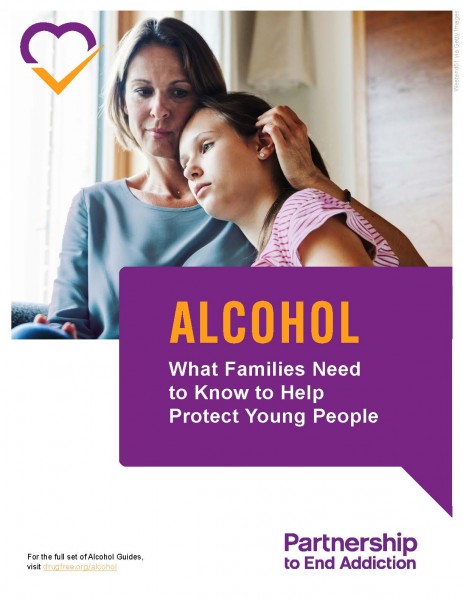 Did you know: 1 in 3 young people aged 12-20 reported drinking alcohol in 2022. 21% Of those youth reporting were aged 12-17. The Partnership to End Addiction shares that as parents and caregivers, we want to do all that we can to protect our children. We worry about what alcohol may do to their health and well-being. They offer a guide to help with addressing this in our busy and somewhat scary world. In this guide, they break down the risks of youth drinking, why it appeals to youth and what you can do to protect your child from its harms.
Did you know: 1 in 3 young people aged 12-20 reported drinking alcohol in 2022. 21% Of those youth reporting were aged 12-17. The Partnership to End Addiction shares that as parents and caregivers, we want to do all that we can to protect our children. We worry about what alcohol may do to their health and well-being. They offer a guide to help with addressing this in our busy and somewhat scary world. In this guide, they break down the risks of youth drinking, why it appeals to youth and what you can do to protect your child from its harms.
March 2024
Lived Experience
 The Child Welfare Information Gateway shares that to truly transform adoption services, it is essential to do the following:
The Child Welfare Information Gateway shares that to truly transform adoption services, it is essential to do the following:
- Be committed to actively listening to diverse narratives,
- Fostering collaboration with and supporting people with Lived Experience,
- Embedding strategies that prioritize the lessons learned from those experiences.
Lived experience means the representation and understanding of an individual’s human experiences, choices, and options. It shares how those factors influence one’s perception based on one’s own life. Through collective efforts, it becomes possible to create an adoption support system that is not only responsive but also values the strength and resilience inherent in every individual's unique journey.
February 2024
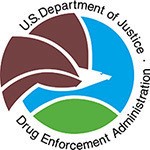 DEA has released the digital copy of an updated Prescription for Disaster: How Teens Misuse Medicine. This publication is designed to be a guide to help the reader understand and identify the current medications that teens are misusing. It is not all-inclusive; not every dosage unit or generic form of the medications can be listed due to space constraints and the frequent introduction of new drugs. The 2023 edition includes new information on fake pills, as well as social media, a major avenue through which teens purchase illicit drugs. Be on the lookout for hard copies of the booklet, as well as a Spanish edition!
DEA has released the digital copy of an updated Prescription for Disaster: How Teens Misuse Medicine. This publication is designed to be a guide to help the reader understand and identify the current medications that teens are misusing. It is not all-inclusive; not every dosage unit or generic form of the medications can be listed due to space constraints and the frequent introduction of new drugs. The 2023 edition includes new information on fake pills, as well as social media, a major avenue through which teens purchase illicit drugs. Be on the lookout for hard copies of the booklet, as well as a Spanish edition! 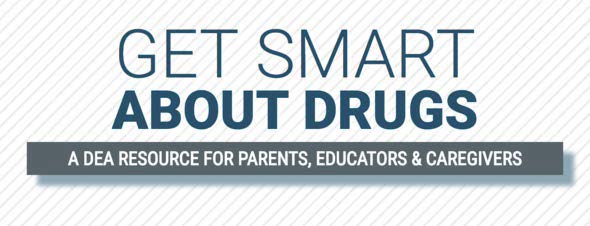
Check out: OUT NOW: 2023 Edition of 'Prescription for Disaster' (govdelivery.com)
February 2024
COA Awareness Week
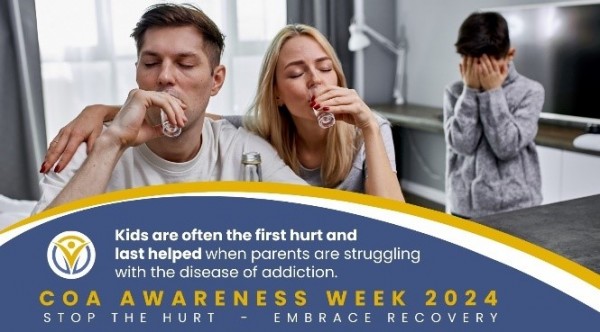 COA Awareness Week honors the struggle of children dealing with the disease of addiction in their families and empowers caring adults who want to help them. Together, we can make a difference to last a lifetime! During COA Awareness Week, you can be a part of NACoA's annual international awareness and advocacy campaign, helping to spread the word that children living in families that struggle with addiction need the support of caring adults. Through awareness activities we can inspire adults to be there for the children who suffer silently, and together we can reach kids and teens with important information. Children living with addiction need to know it's not their fault when a parent struggles with addiction. They also need to understand that these parents have a disease, and learn how to separate the disease of addiction from the parent(s) they love. During COA Awareness Week, do what you can to speak out, reach out, and raise awareness about the silent victims of addiction: the children. These children are often the first hurt and the last helped, but it doesn't have to be that way. You can make a difference with your support and attention during COA Awareness Week. By doing one (or many!) of the suggested COA Awareness Week activities, you can make a difference in the lives of children. And remember: It only takes one caring and supportive adult to take action and empower a child of addiction.
COA Awareness Week honors the struggle of children dealing with the disease of addiction in their families and empowers caring adults who want to help them. Together, we can make a difference to last a lifetime! During COA Awareness Week, you can be a part of NACoA's annual international awareness and advocacy campaign, helping to spread the word that children living in families that struggle with addiction need the support of caring adults. Through awareness activities we can inspire adults to be there for the children who suffer silently, and together we can reach kids and teens with important information. Children living with addiction need to know it's not their fault when a parent struggles with addiction. They also need to understand that these parents have a disease, and learn how to separate the disease of addiction from the parent(s) they love. During COA Awareness Week, do what you can to speak out, reach out, and raise awareness about the silent victims of addiction: the children. These children are often the first hurt and the last helped, but it doesn't have to be that way. You can make a difference with your support and attention during COA Awareness Week. By doing one (or many!) of the suggested COA Awareness Week activities, you can make a difference in the lives of children. And remember: It only takes one caring and supportive adult to take action and empower a child of addiction.
Check out: HOW TO MAKE A DIFFERENCE DURING COA AWARENESS WEEK at 2024-COA-Awareness-Week-Activities.pdf (nacoa.org)
January 2024
Parenting Dos and Don’ts: ADHD and Discipline
Medically Reviewed by Smitha Bhandari, MD on March 16, 2023
Do: Shift Your Mindset
With ADHD, traditional methods of discipline aren’t always the best fit. Shift your mindset from “I have to discipline my child” and get curious about how to help them improve their skills. Taking an attitude of, “What can I do to help them” instead of “How can I get them to do what I want” is a game-changer.
Do: Ask Yourself This Question
Is your child’s behavior truly naughty? In other words, are they intentionally making a bad choice, or struggling with the impulsivity that often comes with ADHD? Most kids who have ADHD know what they should do but can’t get themselves to do it. If you choose to see it as something they want to do but are having a hard time with, you’re more inclined to guide positively instead of punish.
Don’t: Yell
If your daughter got distracted and didn’t do their homework, take a deep breath. If you yell, it won’t change anything. They’ll shut down and not hear anything you say. Even if it does seem to “work” in the short term, it’s damaging because your child is only motivated by fear. You want your child to trust you. Don’t model what it looks like to lose control.
Do: Be Brief
When you communicate with a child who has ADHD, get their attention first. Then keep it short and simple. If you make a request, make sure they understand it. If it’s a big request -- It’s time to talk about your grades, for instance -- stagger the conversation over a series of days or weeks. This gives them time to process in between.
Don’t: Think Too Far Ahead
Just because your child doesn’t finish cleaning up their messy room today doesn’t mean they’ll never see things through. You don’t have to teach your child to master everything right now. With your support and guidance, they’ll learn each skill when they are ready. Build your way to the future instead of worrying about what it might look like.
Do: Learn and Be Compassionate
You can’t see the inner workings of your child’s brain. All you see is your child’s behavior. That can be frustrating and baffling. Just like in any other trying situation, it helps to be informed and empathetic. Read all you can about ADHD from trusted sources so you understand the condition, and be compassionate with your child and yourself.
Don’t: Ask Too Much of Your Child
Kids with ADHD can’t control themselves as well as other children the same age. They may do something well one day and not do it well the next. It’s too much to ask a child with ADHD to be consistent. You’ll both feel a lot better if you meet your child where they are in any given moment.
Do: Celebrate the Wins
Pay attention to what goes well. Maybe your kid raised their grades, even if they still leave all the lights on in the house. Adjust your perspective so that you notice and celebrate what went well. Reinforce the good instead of only dwelling on what you’d like to be different. When your child does what they know well, highlight the effort and what led to the behavior. For example, “You got your homework done. You must feel so proud of yourself. How did that happen so we can keep this going?”
Don’t: Address Every Little Thing
Kids with ADHD are wrong often. They get redirected all day, every day. If you tackle everything all the time, it’ll wear you both out. Choose one or two behaviors to work on and let the rest go for now. You’ll get to them eventually. This way, your child won’t have that “I can’t do anything right” feeling all the time.
Do: Coach and Collaborate
You wouldn’t expect your child to understand how to play soccer without a coach. You also can’t expect them to control themselves when their brains aren’t wired to tell them how. Coach and collaborate with your child so they can practice skills and decision-making in a safe environment. Practice with phrases like, “How do you think we should handle this situation?” Listen and then decide what’s best.
Do: Look for the Opportunities
Your daughter can’t sit still at dinner. They keep popping up and running around. Then again, they have been managing their behavior at school all day and is tired. Shift your expectations so they don’t feel shame for making mistakes. For instance, set a goal for them to settle down for just 2 minutes. Or go with it and let them be the person who gets the extra ketchup and removes plates as each person finishes.
Do: Discipline Every Child Fairly
If you have more than one child and they don’t all have ADHD, their consequences may need to be different. That can be tricky territory for a parent. Tell all your children that you’re a team and consequences will be fair but not always the same. Show compassion when any of your kids feels angry. Say, “I understand this may be hard for you to accept.”
Do: Take Care of Yourself
ADHD behaviors can be tough to deal with. When you’re calm and rested, you can handle more and handle it better. This may mean you cut back on commitments and adjust your schedule and standards. Self-care -- like exercise, sleep, and a good diet -- is also important. That way, you’re better prepared to help your family -- and yourself -- thrive.
November 2023
Teens and Alcohol
 Alcohol is a very powerful, addictive drug that is damaging or even lethal in high doses. Many adults drink moderately and safely. Yet other people drink too much which results in potentially dangerous consequences. For teens, alcohol can be very harmful -- and it's illegal. Webmd invites you to check out the following Q&A to update your knowledge of alcohol and teen drinking. Share this information with a friend, especially if you know someone who has an underage drinker.
Alcohol is a very powerful, addictive drug that is damaging or even lethal in high doses. Many adults drink moderately and safely. Yet other people drink too much which results in potentially dangerous consequences. For teens, alcohol can be very harmful -- and it's illegal. Webmd invites you to check out the following Q&A to update your knowledge of alcohol and teen drinking. Share this information with a friend, especially if you know someone who has an underage drinker.
Visit: Teens, Alcohol, and Abuse (webmd.com)
November 2023
Adult Children of Alcoholics and NACoA share: “It’s Never Too Late to Heal From Addiction in the Home”
 It is important to know that being an adult child of a family member experiencing substance use disorder does not automatically classify you as struggling with issues of mental health. However, it does make the potential more likely. Stuffed emotions may erupt or remain stuffed, slowly eating away at an adult child’s psychological health. Adult children of substance use are significantly more likely to struggle with alcohol misuse, abuse, and substance misuse themselves.
It is important to know that being an adult child of a family member experiencing substance use disorder does not automatically classify you as struggling with issues of mental health. However, it does make the potential more likely. Stuffed emotions may erupt or remain stuffed, slowly eating away at an adult child’s psychological health. Adult children of substance use are significantly more likely to struggle with alcohol misuse, abuse, and substance misuse themselves.
To learn more, visit: What Are the Psychological Affects of the Past on Adult Children of Alcoholics? (nacoa.org)
October 2023
Mark Your Calendars: Take Back Day Is October 28!
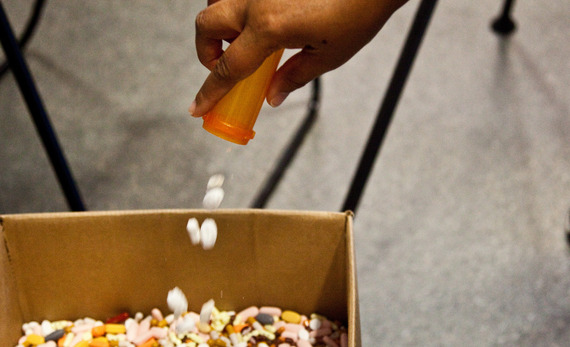 The next National Prescription Drug Take Back Day is October 28, 2023, from 10am-2pm at locations nationwide. This event, which happens twice a year, is a safe, convenient, and responsible way to dispose of unused or expired prescription drugs at locations in communities throughout the country. The April 2023 Take Back Day brought in 663,725 lbs. (332 Tons) of medication.
The next National Prescription Drug Take Back Day is October 28, 2023, from 10am-2pm at locations nationwide. This event, which happens twice a year, is a safe, convenient, and responsible way to dispose of unused or expired prescription drugs at locations in communities throughout the country. The April 2023 Take Back Day brought in 663,725 lbs. (332 Tons) of medication.
For more information check out: National Prescription Drug Take Back Day | Get Smart About Drugs
October 2023
National Domestic Violence Awareness Month
 At the start of a new relationship, it’s not always easy to tell if it will later become abusive. The warning signs of abuse don’t always appear overnight and may emerge and intensify as the relationship grows. One feature shared by most abusive relationships is that the abusive partner tries to establish or gain power and control through many different methods. One or two of these behaviors in a relationship is a red flag that abuse may be present.
At the start of a new relationship, it’s not always easy to tell if it will later become abusive. The warning signs of abuse don’t always appear overnight and may emerge and intensify as the relationship grows. One feature shared by most abusive relationships is that the abusive partner tries to establish or gain power and control through many different methods. One or two of these behaviors in a relationship is a red flag that abuse may be present.
- Telling you that you never do anything right.
- Showing extreme jealousy of your friends or time spent away from them.
- Preventing or discouraging you from spending time with others, particularly friends, family members, or peers.
- Insulting, demeaning, or shaming you, especially in front of other people.
- Preventing you from making your own decisions, including about working or attending school.
- Controlling finances in the household without discussion, such as taking your money or refusing to provide money for necessary expenses.
- Pressuring you to have sex or perform sexual acts you’re not comfortable with.
- Pressuring you to use drugs or alcohol.
- Intimidating you through threatening looks or actions.
- Insulting your parenting or threatening to harm or take away your children or pets.
- Intimidating you with weapons like guns, knives, bats, or mace.
- Destroying your belongings or your home.
Visit the National Domestic Violence Hotline: Warning Signs of Abuse - The Hotline
October 2023
October is Prevention Month.
 This year, we’re celebrating the 10th anniversary of “Talk. They Hear You.®” and looking ahead to SAMHSA’s 20th Prevention Day.
This year, we’re celebrating the 10th anniversary of “Talk. They Hear You.®” and looking ahead to SAMHSA’s 20th Prevention Day.
- Prevention strengthens protective factors and reduces risk factors ― in individuals, families, schools, communities, and across society.
- Prevention science, and decades of community-based experience and scientific research, shows that prevention works.
As parents and communities, Get Involved:
“Talk. They Hear You.”® ― This campaign helps parents and caregivers, educators, and community members get informed, be prepared, and take action to prevent underage substance use.
- The mobile appshows how to turn everyday situations into opportunities to talk with kids.
- Screen4Success― This 10-minute online screening tool helps parents and caregivers better understand the health, wellness, and wellbeing of your children — and find resources to address their needs.
- SAMHSA’s 20th Prevention Day― Join us for the largest annual national gathering dedicated to substance misuse prevention. Learn what’s new and innovative, at this free event.
- National Prevention Week― Celebrates the prevention initiatives of communities and organizations across the country. Download an event planning toolkit and post your #MyPreventionStory on social media.
- Communities Talk to Prevent Alcohol and Other Drug Misuse― Offers resources (including stipends) to plan local events that prevent substance misuse.
- Voices of Youth― Welcomes youth and young adults as agents of change.
Check out: Prevention Month | SAMHSA
September 2023
FASD
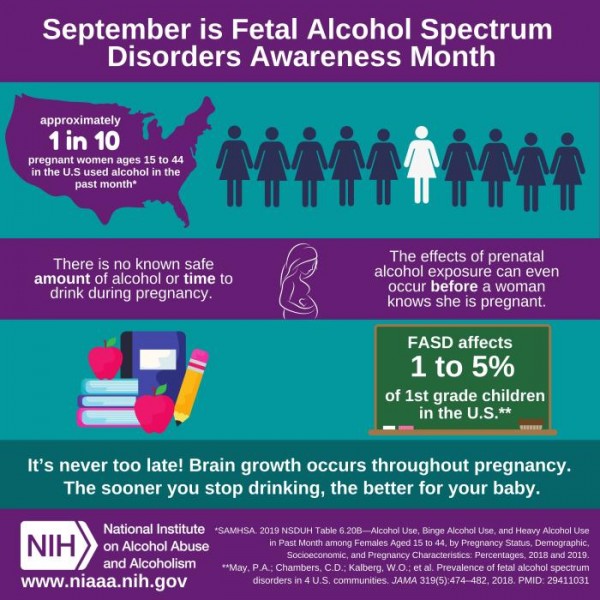 September is FASD Awareness Month FASD Awareness Month. This is an expansion of FASD Awareness Day that has been held each year on September 9th since 1999. People all around the world gather for events to raise awareness about the dangers of alcohol use during pregnancy and the challenges individuals and families can face who are living with FASDs. FASD is 100% preventable.
September is FASD Awareness Month FASD Awareness Month. This is an expansion of FASD Awareness Day that has been held each year on September 9th since 1999. People all around the world gather for events to raise awareness about the dangers of alcohol use during pregnancy and the challenges individuals and families can face who are living with FASDs. FASD is 100% preventable.
September 2023
Helping Your Student Navigate Friendships
 Students' friendships can be protective or increase risk. If students can surround themselves with positive, supportive, academically engaged, and goal-driven friends, they are more likely to flourish. A study on peer influence showed that students with close personal friends were less likely to experience mental health symptoms. However, those students who reported having close friends who drink alcohol and/or use other substances increased their risk for hazardous drinking tenfold and were six times more likely to use cannabis. College Parents Matter newsletter offers some tools for parents to consider. Parents/caregivers can act as a coach and sounding board on a variety of topics:
Students' friendships can be protective or increase risk. If students can surround themselves with positive, supportive, academically engaged, and goal-driven friends, they are more likely to flourish. A study on peer influence showed that students with close personal friends were less likely to experience mental health symptoms. However, those students who reported having close friends who drink alcohol and/or use other substances increased their risk for hazardous drinking tenfold and were six times more likely to use cannabis. College Parents Matter newsletter offers some tools for parents to consider. Parents/caregivers can act as a coach and sounding board on a variety of topics:
- Brainstorming where and how they can meet new friends without partying
- Setting boundaries around substance use with friends or roommates
- How to handle conflicts productively, and knowing when to seek help
- Taking care of themselves when a relationship ends
Watch for red flags that could signal the student is in distress or if substance use (their own or someone else's) is impacting them:
- They are tired all the time. It could be a disruptive roommate, spending nights out, or they could be experiencing mental health distress.
- They are frequently in conflict with roommates or housemates.
- They are disengaged academically. They seem less interested or passionate about their area of study and/or might be skipping class.
- They often ask for more money, but it isn't clear what it is being used for.
- They consistently want to come home on weekends.
College Parents Matter: Fall Quarterly Newsletter (mailchi.mp)
August 2023
Reasons to Connect with the 988 Lifeline
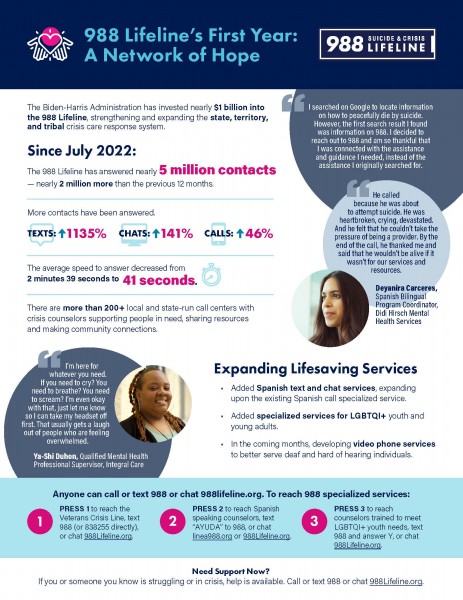 We continue to see a need to let people know that the 988 Lifeline is available for people to connect around many emotional struggles, including:
We continue to see a need to let people know that the 988 Lifeline is available for people to connect around many emotional struggles, including:
- Thoughts of suicide
- Drinking too much
- Anxiety
- Sexual orientation
- Drug use
- Feeling depressed
- Mental and physical illness
- Loneliness
- Trauma
- Relationships
- Economic worries, and more
July 2023
988 Update
 This month marks the one-year anniversary of the 988 Suicide & Crisis Lifeline, which launched in July 2022. SAMHSA is proud of the partnerships have shown over the past year to support people in crisis around the country and to spread the word about 988. The 988 Partner Toolkit now includes a variety of social media text and chat shareables to honor the one-year anniversary of the 988 Lifeline.
This month marks the one-year anniversary of the 988 Suicide & Crisis Lifeline, which launched in July 2022. SAMHSA is proud of the partnerships have shown over the past year to support people in crisis around the country and to spread the word about 988. The 988 Partner Toolkit now includes a variety of social media text and chat shareables to honor the one-year anniversary of the 988 Lifeline.
Please keep your eyes on the website at 988 Partner Toolkit | SAMHSA.
June 2023
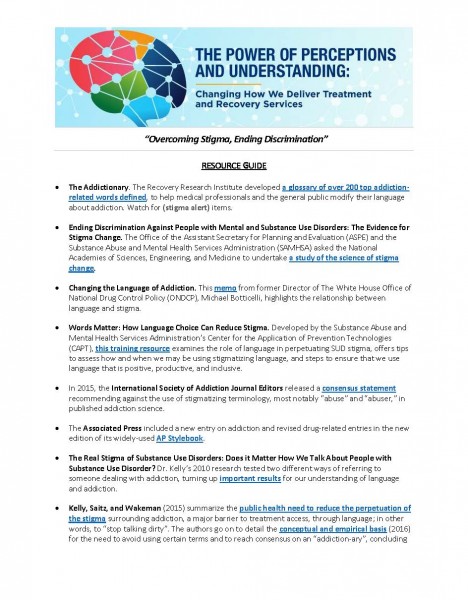
May 2023
Support a Loved One
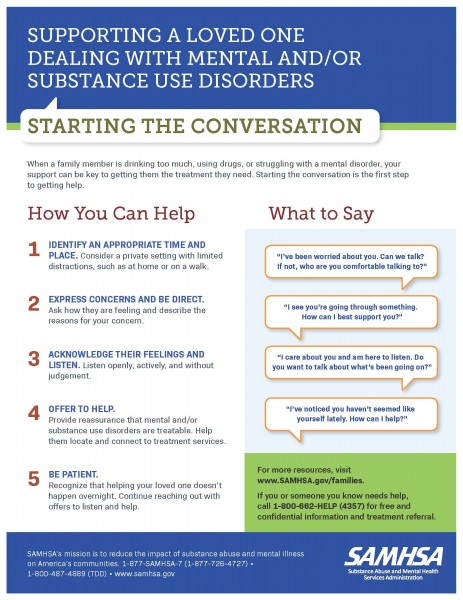 When living in the chaos of substance misuse in the family, take a minute and learn how to start the conservation toward help and recovery. One of the most difficult things is to know what to say to a loved one when you are concerned about the behaviors you are observing.
When living in the chaos of substance misuse in the family, take a minute and learn how to start the conservation toward help and recovery. One of the most difficult things is to know what to say to a loved one when you are concerned about the behaviors you are observing.
Check out: www.SAMHSA.gov/families.
If you or someone you know needs help, Call 1-800-662-HELP (4357) for free and
confidential information and treatment referral.
April 2023
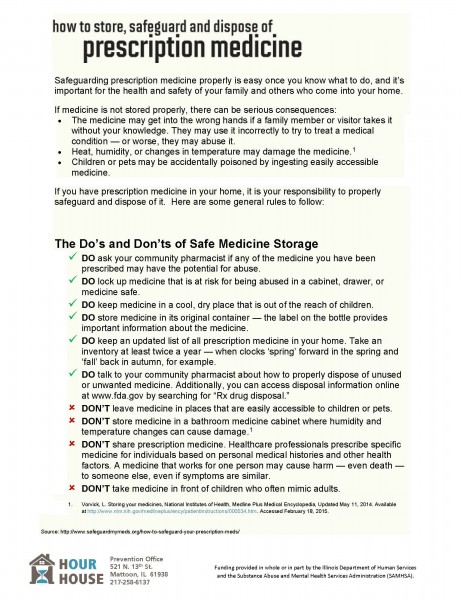
April 2023
Take the Test
 Mental health conditions, such as depression or anxiety, are real, common and treatable. And recovery is possible. Online screening is one of the quickest and easiest ways to determine whether you are experiencing symptoms of a mental health condition. After your mental health test, you will see information, resources, and tools to help you understand and improve your mental health.
Mental health conditions, such as depression or anxiety, are real, common and treatable. And recovery is possible. Online screening is one of the quickest and easiest ways to determine whether you are experiencing symptoms of a mental health condition. After your mental health test, you will see information, resources, and tools to help you understand and improve your mental health.
Mental Health America Inc. states: “Please note: Online screening tools are meant to be a quick snapshot of your mental health. If your results indicate you may be experiencing symptoms of a mental illness, consider sharing with a mental health provider (such as a doctor or a therapist) who can give you a full assessment and talk to you about options for how to feel better.”
April 2023
WARNING: BEWARE
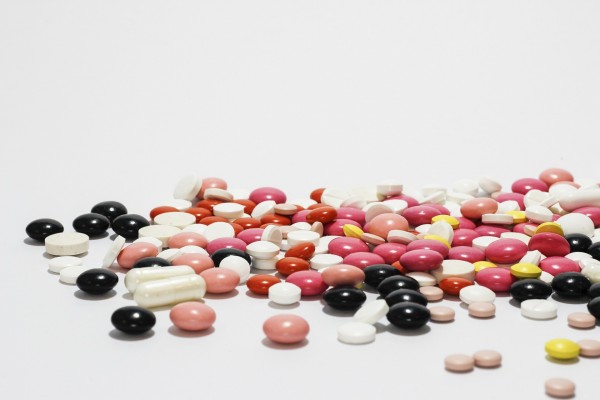 The Drug Enforcement Administration has issued the attached Public Safety Alert regarding xylazine. In the words of DEA Administrator Anne Milgram:
The Drug Enforcement Administration has issued the attached Public Safety Alert regarding xylazine. In the words of DEA Administrator Anne Milgram:
“Xylazine is making the deadliest drug threat our country has ever faced, fentanyl, even deadlier,” said Administrator Milgram. “DEA has seized xylazine and fentanyl mixtures in 48 of 50 States. The DEA Laboratory System is reporting that in 2022 approximately 23% of fentanyl powder and 7% of fentanyl pills seized by the DEA contained xylazine.”
This alert has been posted on www.dea.gov. A publication from the DEA Intelligence Division regarding Xylazine that can be shared is available here: The Growing Threat of Xylazine and its Mixture with Illicit Drugs (dea.gov).
April 2023
Know the Signs
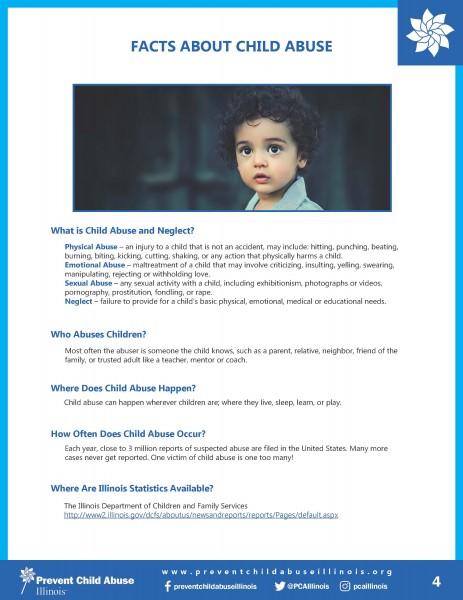 According to the National Association for Children of Addiction, 1 in 4 children live in families with a parent/caregiver suffering with an alcohol or other substance use disorder. This places them at a higher level of risk for lifelong negative mental and physical health consequences. As part of Prevent Child Abuse Month, PCA Illinois has the shared information flyer. know the signs and help our children.
According to the National Association for Children of Addiction, 1 in 4 children live in families with a parent/caregiver suffering with an alcohol or other substance use disorder. This places them at a higher level of risk for lifelong negative mental and physical health consequences. As part of Prevent Child Abuse Month, PCA Illinois has the shared information flyer. know the signs and help our children.
February 2023
Teen Talk
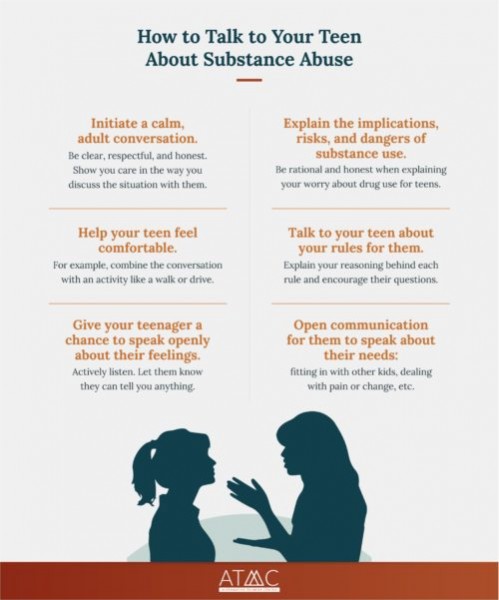 As you start spring, take a minute to spend time with your busy teen and share a conservation about substance use. It is easy to get distracted and not take the time that is so vital to a healthy family and community. With spring comes teen plans for summer fun. Protect your teen by talking, not just chatting but meaningful talk. Show respect as a person who makes choices and can show responsible decisions. One of the most important skills in "teen talk" is listening. Listening with your ears and your heart.
As you start spring, take a minute to spend time with your busy teen and share a conservation about substance use. It is easy to get distracted and not take the time that is so vital to a healthy family and community. With spring comes teen plans for summer fun. Protect your teen by talking, not just chatting but meaningful talk. Show respect as a person who makes choices and can show responsible decisions. One of the most important skills in "teen talk" is listening. Listening with your ears and your heart.
February 2023
Help from Sesame Street
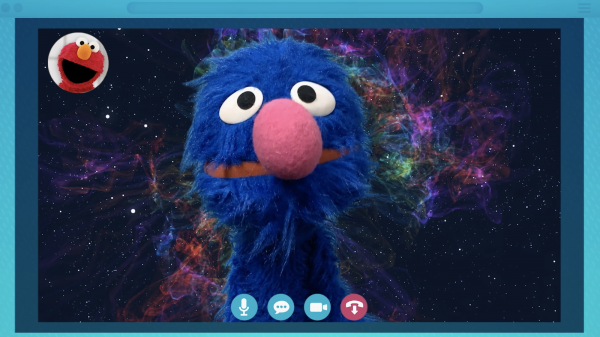 “When a family member struggles with addiction, the whole family struggles. Children often think it’s their fault; they feel shame, embarrassment, guilt, and loneliness; they may feel invisible. It takes special effort to start important conversations and answer children’s questions.” With love and support, the family can cope with the challenges of addiction together. Sesame Street in Communities has resources to assist both families and professionals in working with children experiencing the chaos of substance misuse. Build a strong support as you visit the website.
“When a family member struggles with addiction, the whole family struggles. Children often think it’s their fault; they feel shame, embarrassment, guilt, and loneliness; they may feel invisible. It takes special effort to start important conversations and answer children’s questions.” With love and support, the family can cope with the challenges of addiction together. Sesame Street in Communities has resources to assist both families and professionals in working with children experiencing the chaos of substance misuse. Build a strong support as you visit the website.
Check out: Home - Sesame Street in Communities - Sesame Street in Communities
February 2023
January 2023
Know the Facts as You Plan
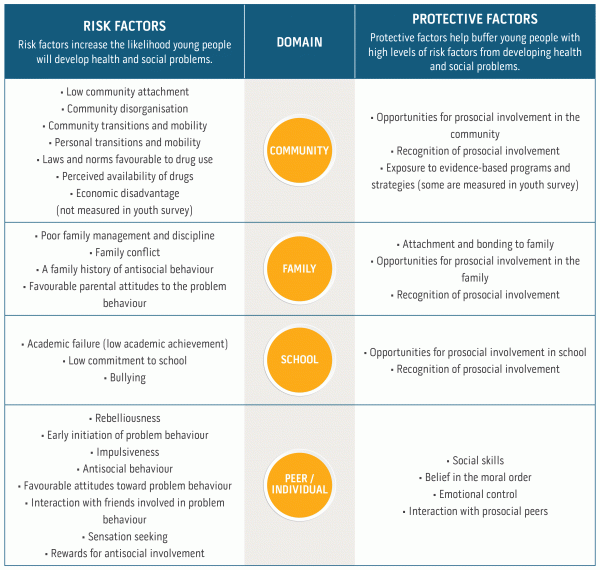 If you or a group you are working with are planning on building preventive programming for families and communities, take some time and learn about the research of risk & protective factors to be addressed. Learning about the issues to address as you plan and develop projects will help build a stronger effort and help with healthy outcomes. Take a look at the overview posted. For more information contact the Illinois Family Resource Center office.
If you or a group you are working with are planning on building preventive programming for families and communities, take some time and learn about the research of risk & protective factors to be addressed. Learning about the issues to address as you plan and develop projects will help build a stronger effort and help with healthy outcomes. Take a look at the overview posted. For more information contact the Illinois Family Resource Center office.
December 2022
Sober Driving
 During the holiday season, many of us look forward to get-togethers with friends and family. Unfortunately, holidays can also be a dangerous time for alcohol- and drug-related traffic incidents. SAMHSA is observing National Impaired Driving Prevention Month in December to raise awareness of this deadly yet preventable problem. Did You Know?
During the holiday season, many of us look forward to get-togethers with friends and family. Unfortunately, holidays can also be a dangerous time for alcohol- and drug-related traffic incidents. SAMHSA is observing National Impaired Driving Prevention Month in December to raise awareness of this deadly yet preventable problem. Did You Know?
- Since the early 1980s, public policy changes, school and community interventions, and grassroots advocacy have significantly decreased alcohol-related driving fatalities. Yet, driving impaired (by alcohol or other drugs) continues to take lives.
- About 30 percent of all traffic fatalities involve a driver who is alcohol impaired. Each day, about 32 people die in a crash in which at least one driver is alcohol impaired. That’s one person every 45 minutes.
- 56 percent of drivers who are seriously injured or killed in a crash tested positive for at least one drug, according to preliminary data from an ongoing study.
- It’s illegal everywhere in the United States to drive under the influence of alcohol, marijuana, opioids, methamphetamines, or any potentially impairing drug.
- Even in states where marijuana laws have changed, it’s still illegal to drive under the influence of that drug.
- Alcohol impairs the ability to drive — affecting our vision, reaction times, judgement, and ability to multi-task. Driving under the influence of other drugs can have equally deadly consequences. Visit: The Gift of Sober Driving | SAMHSA
October 2022
Traditions Build Strength
 To build a strong family and be supportive of the culture, build and pass on family and community traditions. With that focus, PBS Kids invites you to celebrate Hispanic Heritage Month. Each year, Americans observe National Hispanic Heritage Month from September 15 to October 15, by celebrating the histories, cultures and contributions of American citizens whose ancestors came from Spain, Mexico, the Caribbean and Central and South America.
To build a strong family and be supportive of the culture, build and pass on family and community traditions. With that focus, PBS Kids invites you to celebrate Hispanic Heritage Month. Each year, Americans observe National Hispanic Heritage Month from September 15 to October 15, by celebrating the histories, cultures and contributions of American citizens whose ancestors came from Spain, Mexico, the Caribbean and Central and South America.
Honoring family traditions is important to kids and grown-ups across all backgrounds and cultures. This month we are celebrating the Hispanic cultures and traditions. Sharing special traditions can strengthen family bonds and create a sense of belonging to children and grown-ups. Traditions can help us connect with cultural or religious roots. They are often shared and passed on to others — sometimes through generations. Not all traditions are healthy. When the traditions include misuse of substances, triggers mental health issues or impacts finances, it can be stressful and unhealthy. To help families focus on creating and/or continuing the supportive traditions of their family and community, visit What Are Your Favorite Family Traditions? |… | PBS KIDS for Parents.
December 2021
A Family Disease
 Addiction affects not only individuals, but the family members and friends of the person struggling with substance use disorder. A reminder that addiction is a family disease. As families join in the treatment process, it can be helpful for recovery of the entire family and the family's growth process as a supportive system.
Addiction affects not only individuals, but the family members and friends of the person struggling with substance use disorder. A reminder that addiction is a family disease. As families join in the treatment process, it can be helpful for recovery of the entire family and the family's growth process as a supportive system.
Check out the information to assist families from Hazelden Betty Ford at Helping Families Cope with Addiction | Research Update | Hazelden Betty Ford.

